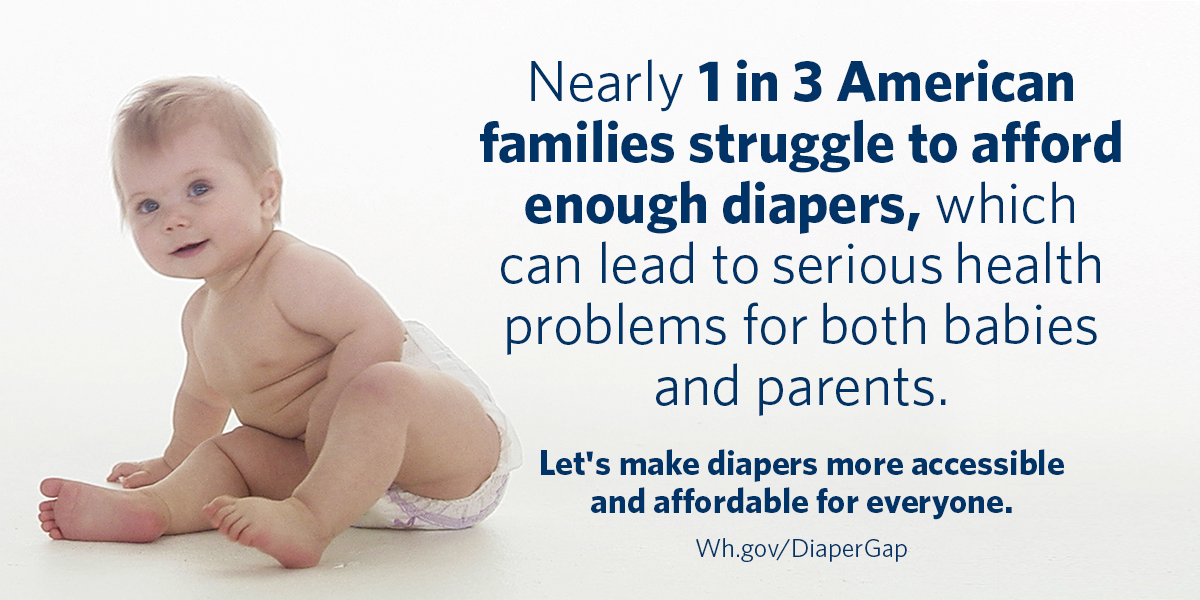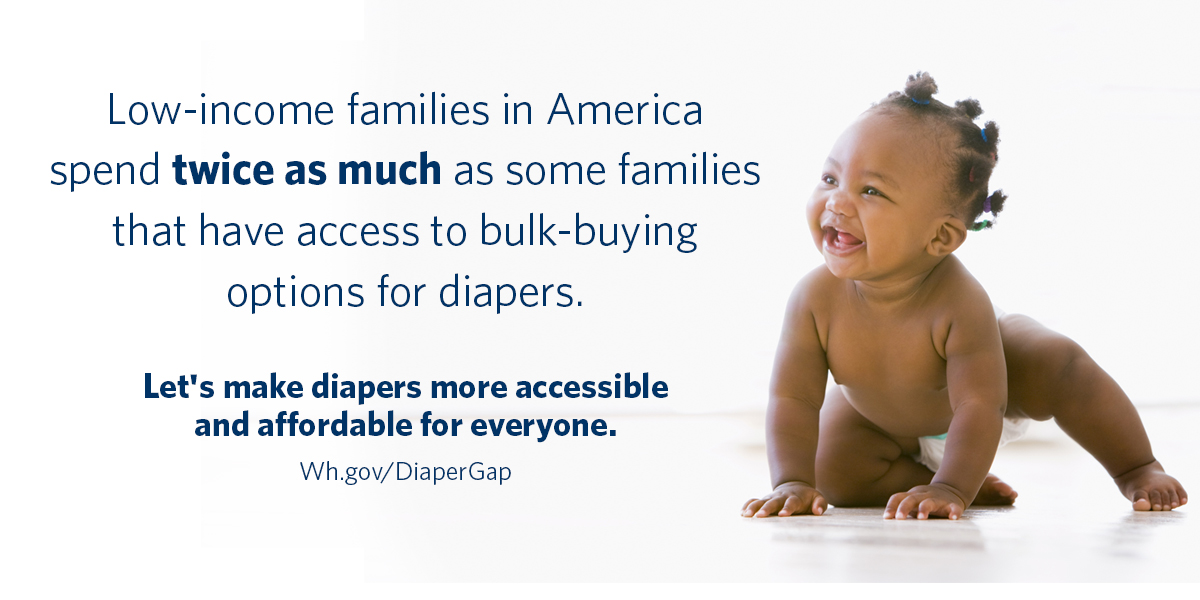
I remember being astounded at the rate at which my two girls used diapers when they were born. I’d drive out to the big box store and buy case after case, knowing I’d be back soon. Today, many parents can have bulk orders delivered directly to their doorsteps with the diapers their child needs, when they need them – at a lower cost than ever before. Technology and the new economy have given us access to necessities like diapers at just the click of a button.
But the benefits of this new economy aren’t available to all Americans, and the consequences of that divide are severe. Nearly 1 in 3 families struggle to afford diapers for their babies. In some cases, moms and dads stretch the time between diaper changes to make their limited resources last. 
This can lead to serious health problems for babies and parents. Young children can end up hospitalized with problems like urinary tract or staph infections. Imagine the stress of not being able to afford the basics that your baby needs – not a small matter for struggling parents and caregivers. When families can’t afford a healthy number of diapers for their babies, they’re faced with a choice between buying diapers and paying for food, rent, or utilities like heat. That’s a choice that no family should have to make. In the worst case, over time these kinds of stressors can contribute to the incidence of abuse and neglect of young children.
The Diaper Disparity
These choices become even more pressing because the lowest-income quintile of families with infants pay 14 percent of their income for diapers alone – an average of $936 for diapers per child each year, while many higher income families pay less than half that amount. These struggling families may not have access to transportation to the big box store, the credit or capital to buy in bulk at cheaper prices, or the access to internet or ability to receive packages required for online subscription services. The technology that makes life easier for so many of us just doesn’t provide the necessary supports for these families. 
There is also no federal assistance for purchasing diapers, unlike other essentials like food or health insurance. Programs like WIC, SNAP, Medicaid help provide parents with nutritious foods and the supports they and their babies need to stay healthy, and the President’s budget has called for $10 million to test effective ways to get diapers to families in need and document the health improvements that result. But unless Congress acts, we don’t have a program to help struggling families buy diapers for their children. So, we’re getting creative and using every tool we have to help solve this problem.
How We're Taking Action
Tomorrow, the President is traveling to Texas to participate in SXSW, where he’ll talk about how we can use technology to solve the issues facing Americans today. Ahead of his trip, the White House is highlighting a cross-sector strategy to expand access to affordable diapers for America’s poorest families. Online retailers, diaper manufacturers and non-profits are partnering to expand access to diapers for families in need.
As a result of these efforts, Covenant House – a youth homeless shelter – will be able to double the number of diapers that they can order with the same amount of money – and they'll cut the shipping time down from one week to two days. The mothers and children in their care will benefit from the added reliability, and the organization’s resources will be able to stretch to other priority areas like job training, daycare and skills courses.
By calling these companies and non-profits to the table, we are breaking down the barriers to access and harnessing the tools of the new economy so that they can benefit all families. When you have a baby, diapers are a necessity. They are not optional. Addressing the high cost of diapers for low-income families can help to take one more burden off those families as they strive to reach the middle class, and give the next generation the great start in life that all kids deserve.
We want every child to grow, thrive, and reach their full potential. We can make that possible by harnessing the tools of this new economy to serve all Americans, because no family should have to choose between keeping their babies healthy and keeping the lights or heat on.


